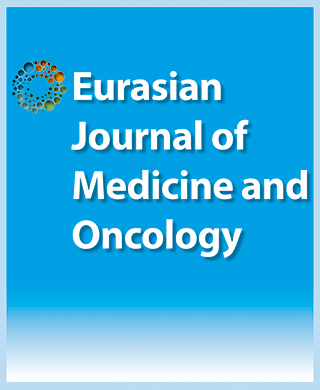

Eradication of Helicobacter pylori in Patients with Inflammatory Bowel Disease for Prevention of Recurrences - Impact on the Natural History of the Disease
Modesto Varas Lorenzo1, Fernando Muñoz Agel2, Elena Sánchez-Vizcaíno Mengual31Department of Gastroenterology, Hospital Sanitas CIMA, Barcelona, Spain; Department of Hepatology and Gastroenterology, Hospital; Universitario Teknon Quirón Salud, Barcelona, Spain; Universitat Oberta de Catalunya, Facultat de Ciencies de la Salut, Barcelona, Spain, 2Endoscopy Unit and Department of Gastroenterology Hospital Sanitas CIMA, Barcelona, Spain, 3Medical Writing and Research Projects Management, Santa Coloma de Gramanet, Barcelona, Spain,
Objectives: Although, currently, it turns to speculate on infectious etiology of Crohn’s disease (CD), many studies have attributed a lower prevalence of Helicobacter pylori infection in patients with inflammatory bowel disease (IBD). The aim of this retrospective study was determining the benefit of detection and eradication of H. pylori in patients with IBD and its potential impact on the natural history of the disease. Methods: Retrospective study of 125 patients: 20 of the control group and 105 with gastrointestinal disorders. The 13Curea breath test was required as a routine procedure for all patients before receiving any dose of sulfasalazine. Results: Case group had an average of infection with H. pylori (42%), similar to the control group (40%). IBD showed a similar positivity to 13C-urea breath test (OR=0.99; 95% CI: 0.32–3.05). Higher incidence was found in microscopic colitis (46%) and CD (52%), than in ulcerative colitis (40%), without substantial differences. Patients treated for H. pylori, reduced the number of recurrences. Conclusion: The eradication of H. pylori in patients with IBD may have a positive impact on the natural history of the disease, although more prospective studies are needed. Keywords: Inflammatory bowel disease, Crohn’s disease, 13C breath test, Helicobacter pylori sulfasalazine
Cite This Article
Varas Lorenzo M, Muñoz Agel F, Sánchez-Vizcaíno Mengual E. Eradication of Helicobacter pylori in Patients with Inflammatory Bowel Disease for Prevention of Recurrences - Impact on the Natural History of the Disease. EJMO. 2019; 3(1): 59-65
Corresponding Author: Elena Sánchez-Vizcaíno Mengual



